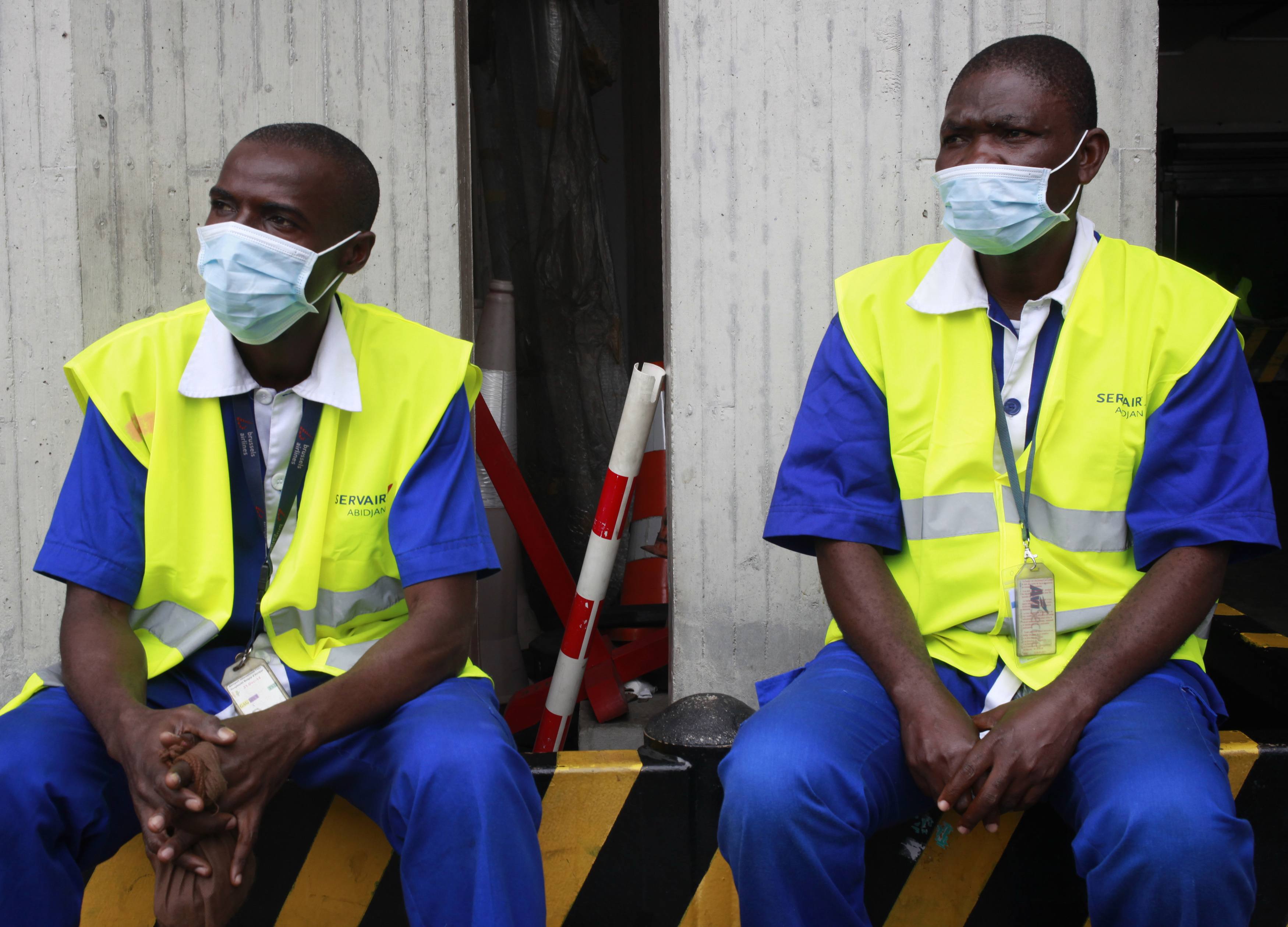The World Health Organization authorised the use of experimental drugs to fight Ebola as the death toll topped 1,000 and a Spanish priest became the first European to succumb to the outbreak.
The declaration by the UN's health agency came Tuesday after a US company that makes an experimental serum called ZMapp said it had sent all its available supplies to hard-hit west Africa.
"In the special circumstances of this Ebola outbreak it is ethical to offer unregistered interventions as potential treatments or prevention," WHO assistant director general Marie-Paule Kieny said in Geneva after a meeting of medical experts.
UN chief Ban Ki-moon announced plans to step up the global response to the outbreak, while urging governments to "avoid panic and fear" over an easily-preventable disease.
The epidemic, the worst since Ebola was first discovered four decades ago, has killed 1,013 people since early this year, the WHO said.
The announcement came before West African regional bloc ECOWAS said one of its officials had died from the disease in Nigeria, taking the total number of deaths in the country to three.
Cases have so far been limited to Guinea, Liberia and Sierra Leone, which account for the bulk of victims, and Nigeria.
Terror has gripped the impoverished west African countries ravaged by the disease, with harrowing tales emerging of people being shunned by their villages as the virus fells those around them.
When AFP visited the Liberian village of Ballajah, some 150 kilometres (90 miles) from the capital Monrovia, 12-year-old Fatu Sherrif had been locked away with her mother's body without food and water for a week.
Her cries went unanswered as panicked residents fled the village when both her parents fell sick.
Fatu later died and her brother Barnie, 15, despite testing negative for Ebola, was left alone and hungry in an abandoned house.
"Nobody wants to come near me and they know -- people told them that I don't have Ebola," he told AFP.
Promising vaccines
Elderly Spanish priest Miguel Pajares, who became infected while helping patients in Liberia, died in a Madrid hospital on Tuesday, five days after being evacuated.
He had been treated with ZMapp, which failed to save him but has shown positive effects on two US aid workers also infected in Liberia.
The Economic Community of West African States said a staff member of its Lagos Liaison Office, 36-year-old Jatto Asihu Abdulqudir, had died.
Abdulqudir, a protocol assistant, was among those who assisted the Liberian delegate to a regional meeting, Patrick Sawyer, who died from Ebola at a Lagos hospital on July 25.
The official had been quarantined since Sawyer was confirmed as having Ebola.
There is currently no available cure or vaccine for Ebola, which the WHO has declared a global public health emergency, and the use of experimental drugs has stoked a fierce ethical debate.
Despite promising results for the ZMapp treatment, made by private US company Mapp Biopharmaceutical, it had only been tested previously on monkeys.
ZMapp is also in very short supply and the company said it had sent all available doses to west Africa free of charge, after an outcry over its use on foreign aid workers.
The WHO's Kieny said the UN agency had been told three doses were sent to Liberia.
Sierra Leone's health ministry spokesman Sidi Yahya Tunis told AFP the country had officially requested a shipment of the serum.
While the ZMapp stock has been exhausted for now, Kieny stressed there were other "potential therapies and vaccines... considered very serious alternatives" and that two possible vaccines were moving rapidly towards clinical trials.
She pointed out that plenty of drugs had been developed "to a point", but companies had not footed the bill for expensive clinical trials as the virus was "typically a disease of poor people in poor countries where there is no market".
The use of unauthorised drugs that had proven safe and effective in monkeys could be a "potent asset" in the fight against Ebola, she said.
Price hikes and food shortages
Drastic containment measures have caused transport chaos, price hikes and food shortages, and are stoking fears that people could die of hunger.
Numerous countries around the globe have imposed emergency measures, including flight bans and improved health screenings.
Guinea-Bissau was the latest West African nation to close its borders with an affected country -- its neighbour Guinea. It has also taken a raft of radical measures such as banning group gatherings at weddings and funerals.
Sierra Leone President Ernest Bai Koroma meanwhile expressed his "utter dismay" at the "slow pace" of the international community in responding to the outbreak.
Eight Chinese medical workers who treated patients with Ebola have been placed in quarantine in Sierra Leone, but China's state news agency Xinhua said they showed no signs of Ebola symptoms as yet.






















































